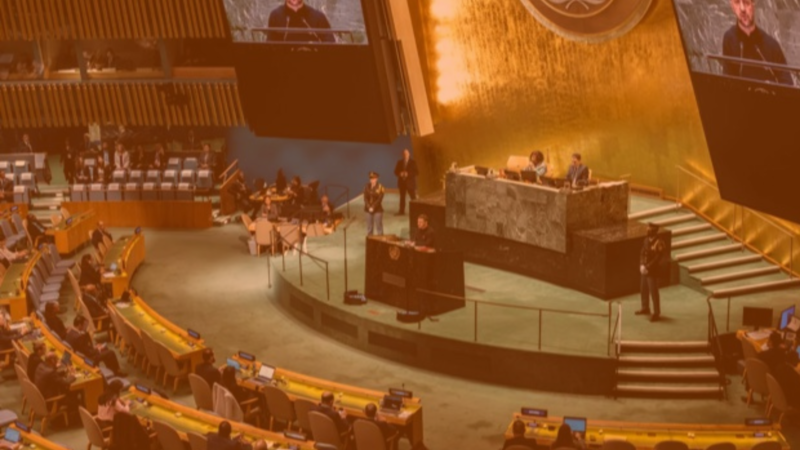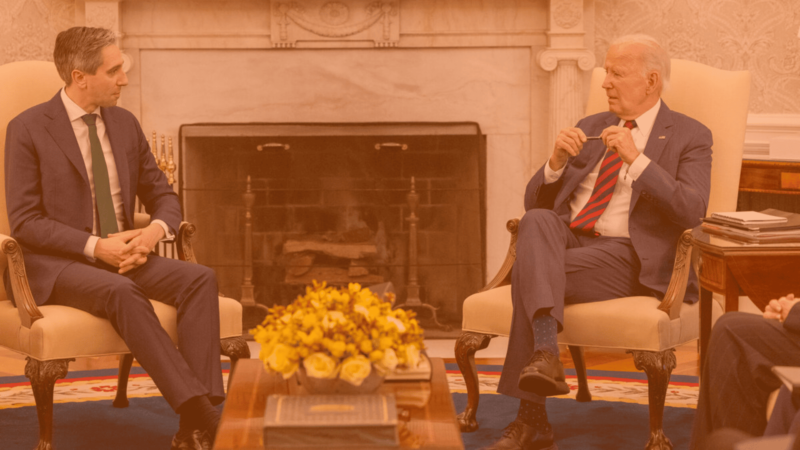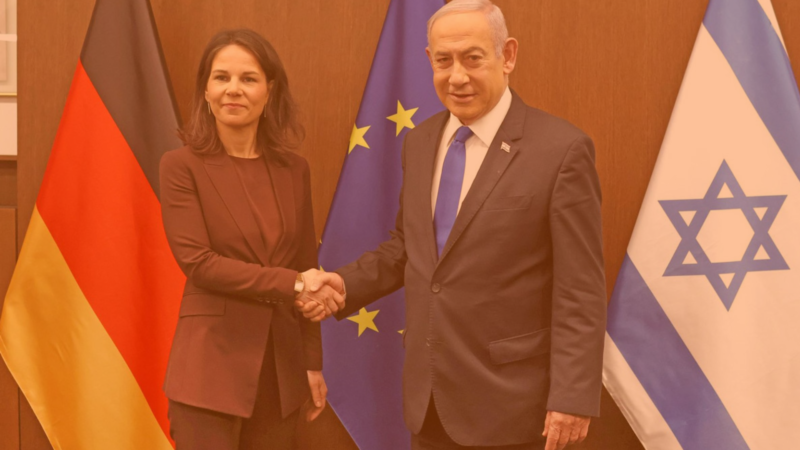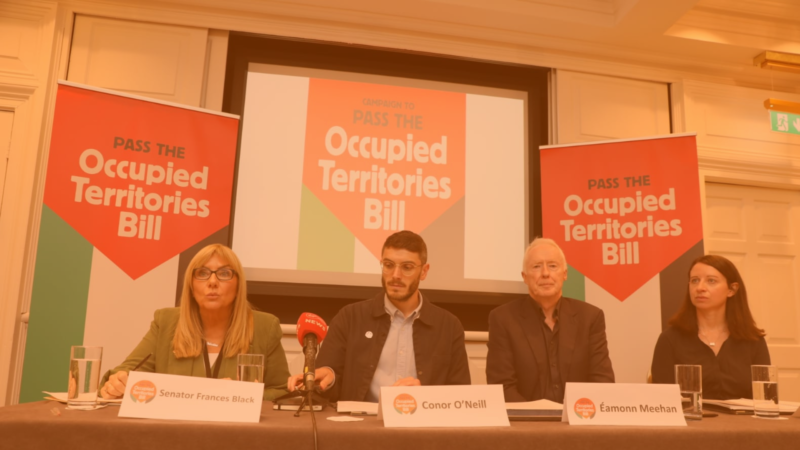The book — Everything Must Change! The World After Covid-19 — based on our DiEM25 TV conversations is finally out. Read Srećko Horvat’s foreword here.
“Since armies can reach each other regardless of the thousands of miles which lie between them, friends have to show that they are just as independent from spatial distances as enemies. So let’s continue shooting our long distance missiles of friendship to each other in order to show those who are inventive only in order to destroy, that we are just as able to nullify space as they.”
― Günther Anders to Claude Eatherly, 1959
In the famous novel of the mid-twentieth century The Leopard, Giuseppe Tomasi di Lampedusa chronicles the struggle of the Sicilian aristocracy to survive in the face of civil war and revolution, the so-called Risorgimento. One of the most famous sentences — later proclaimed by Alain Delon in Luchino Visceonti’s movie adaptation of the book — reads, “Everything must change, so that everything remains the same.” In a similar way, forced by the Covid-19 crisis, our contemporary ruling class is well aware that a deep transformation is taking place and that the only way for things to remain the same is the emergence of a new social and political arrangement that can keep them in power.
What other proof is needed of the deep tensions plaguing capitalism but the spiking of Jeff Bezos’s fortune by $13 billion in a single day in July 2020, as the Covid-19 crisis prioritizes the free movement of goods even higher than the free movement of people, while, at the same time, Amazon workers have been dying of Covid-19 and protesting their inhuman working conditions? What other proof than Elon Musk, the embodiment of the capitalist expansionist dream, who, when challenged with the claim that the United States coup against Evo Morales occurred to enable him to obtain Bolivia’s lithium, simply answered, “We will coup whoever we want! Deal with it.” And this is not the first time that the ruling class has openly proclaimed that there is a class war going on. Remember Warren Buffet, another billionaire, who famously said, “There’s class warfare, all right, but it’s my class, the rich class, that’s making war, and we’re winning.”
With the COVID-19 crisis, which is exacerbating existing inequalities and enhancing the accumulation of profit for exactly those driving the planet toward mass extinction, it has never been so tangible that a brutal class war is happening. And they are, again, trying to win.
“Everything must change, so that everything remains the same” proclaims the ruling class once again, clinging to the hope that they will manage to stay in power and continue the vicious cycle of exploitation, extraction, and expansion — the three Es of the world system called capitalism. Instead of investing in the hospitals and schools that were already victims of decades of austerity and underfunding, they are, once again, bailing out the companies responsible for the climate crisis and global injustice. Instead of protecting workers’ rights and using technology to abolish exploitation, the suffering of so-called “essential” (or “frontline”) workers has only increased with the COVID-19 crisis, while the situation is being exploited for the expansion and acceleration of “surveillance capitalism.”
Instead of protecting the climate, further extraction of natural resources and destruction of habitats is leading to an age of pandemics, with even deadlier viruses than COVID-19 waiting just around the corner. Instead of defunding the police, almost everywhere police have responded to COVID-19 as to a war, transforming themselves into an army. As a recent commercial for the National Guard in the United States claimed, “Sometimes the front lines are right in our backyard.”
It seems the famous call of the Weather Underground to “Bring the war home!” has suddenly been realized, only its cause is not a social movement or a clandestine revolutionary party, but a virus. From Minneapolis to Portland, Budapest to Istanbul, and Santiago to Belgrade, the capitalist war has now, indeed, become a civil war. “I can’t breathe” — repeated again and again by Eric Garner, George Floyd, and many other victims of structural racism — has become the predominant feeling of those suffering and dying from the suffocations of police brutality, air pollution, viruses, depression, anxiety, fear, and the myriad other symptoms of the expansion of capital into nature, animals, lungs, minds, and souls.
While the viruses of capitalism and racism ravage the world, this book itself is the product of a different kind of virus.
Not only would this publication not have come to light without the COVID-19 coronavirus, but it is a product of the “viruses” of cooperation and internationalism that are aimed precisely at the virus of a world system that is driving us toward extinction. The plethora of critical voices that have emerged from “self-isolation” is a proof — bye-bye Maggie Thatcher! — that there is such thing as society, even if we are often forced to behave and die as individuals. The project to document some of these voices, first in video conversations and then in this book, started in a room in Vienna in which I was confined to isolation in mid-March 2020, just as Europe became the epicenter of the COVID-19 pandemic and before it would severely hit the United States, Brazil, Mexico, and elsewhere. In those early days, states across Europe declared a “state of exception” with unprecedented restrictions on movement, and I was unable to return to my country, Croatia, for another two months.
The only way to prevent myself from going crazy and falling into utter hopelessness consisted in hacking my way out of “self-isolation” by creating what we called “DiEM25 TV: The World After Coronavirus.” For those of us in the Democracy in Europe Movement 2025, who are used to tirelessly traveling around the world, meeting people, and organizing on the ground, isolation was a new situation, as it was for every true internationalist. Suddenly, all that was left was the digital. And even this would soon be turned into what Naomi Klein called the “Screen New Deal”: the penetration of surveillance capitalism into our brains and souls, the further exploitation of cognitive workers, and the extraction of our affects and even our unconscious.
Yet, for a short time between mid-March and July 2020, which already seems like centuries ago, we succeeded in exploiting a crack in the “Screen New Deal” and launched an online “television” channel from our living rooms and places of self-isolation. Much more than just television, this was the creation of a common space, free to everyone, constructed by hundreds of activists and intellectuals from around the world. Rarely have so many people been connected through a single event like the COVID-19 pandemic, with billions around the world placed in some form of quarantine. Rarely have the people on this planet engaged in so much communication, and this despite widespread “social distancing” — for, while there was physical distancing, the social resurged as never before.
We have seen the worst of times and the best of times: on the one hand, a completely new situation of an unprecedented health crisis and, on the other, the necessity to connect and construct a world beyond the destructive notion of “progress” that dominates capitalist modernity. If the slogan of the World Social Forum was “Another world is possible,” ours is that graffitied in Minneapolis after the brutal murder of George Floyd: “Another end of the world is possible.” Over the course of 2020, it has become clear (even to those previously in denial) that the end of the world as we know it is everywhere. People are suffocating not just at the hands of a virus but of police brutality and a world system based on extraction, expansion, and exploitation. The climate crisis, the nuclear threat, pandemics, and racism: these are the four horsemen of global capitalism and its structural violence against nature, humans, and the future itself. If we want this to change, nothing can remain the same.
This book is intended as a collective message that transnational cooperation and resistance, precisely in times of global lockdowns and police states, not only remains possible, but becomes necessary.
The list of people to thank, including both those whose conversations have been published and those whose haven’t (simply because of a tight schedule and publishing constraints), is long and incomplete. If there is one person without whom DiEM25 TV would certainly have been impossible, it is Davide Castro: a brilliant comrade from Portugal who made our program live and alive in the first months of quarantine. Next are the human machines Yanis Varoufakis and Renata Ávila who, with their immense energy and critical thinking, led and organized many of the conversations; Judith Meyer, who was a true driving force in the shadows; and our brothers and sisters in arms from DiEM25: Ivana Nenadović, Erik Edman, Luis Martín, Mehran Khalili, Sissy Velissariou, Johannes Fehr, Simona Ferlini, Pawel Wargan, David Adler, Claudia Trapp, Jordi Ayala Roqueta, Pawel Wargan. A big thanks also to numerous DiEM25 volunteers: Andrea Chavez, Max Gede, Dilek Guncag, Esmé Flinders, Ioannis Theocharis, Jerome Bertrand, Julie Hamilton, Micah Jayne, Michael Giardino, Pim Schulte, Rodrigo Fiallega, Niels Wennekes, Matias Mulet, and many others.
Last but not least, in a world in which education and journalism, publishing and critical thinking, become not only a privilege but subversive acts in themselves, it is the courageous publishers — and readers! — who are in a race against time itself, not only preserving an archive for a future in which mass extinction is quickly becoming our only horizon, but disseminating the tools for a common struggle toward a world beyond the ceaseless expansion of capitalism and fascism. Thanks to the daring publisher Colin Robinson and our diligent editor Catherine Cumming, these conversations have truly become a sort of collective diary of the early weeks and months of Covid-19, a common endeavor that might one day serve to document that, even in dark times, to paraphrase Bertolt Brecht, there was singing. And the songs were not just about the dark times, but about friendship and love, solidarity and egalitarianism, mutual aid and resistance to the old world that is dying and kidnapping our future.
Everything must change, so that nothing remains the same.
Nothing of the old system must stay, and everything of the beauty, humbleness, and determination of our common struggle — as heterogeneous and ambiguous it often appears — must be cherished as one thing that the old system will never be able to understand. It must be grasped as one of the key ingredients that will bring this system down. Other ingredients include, as we hope this book shows, lots of organization and introspection occurring at the same time; less work, more love; less monologue, more dialogue; less ego, more compassion — and, again, lots of organization! If they have missiles that can destroy entire countries thousands of miles away, let us, to paraphrase the great Günther Anders, never stop shooting our long-distance missiles of friendship to each other, in order to show those who are inventive only in order to destroy that we are not out to nullify space as they are — we are, unlike them, able to create new spaces and reinvent a future worth living for.
Everything Must Change! THE WORLD AFTER COVID-19
Edited by Renata Ávila and Srećko Horvat
Contributors: Tariq Ali, David Adler, Gael García Bernal, Larry Charles, Noam Chomsky, Brian Eno, Daniel Ellsberg, Kenneth Goldsmith, David Graeber, Johann Hari, Maja Kantar, Stephanie Kelton, Stefania Maurizi, Evgeny Morozov, Maja Pelević, Vijay Prashad , Angela Richter, Saskia Sassen, Saša Savanović, Jeremy Scahill, Richard Sennett, John Shipton, Astra Taylor, Ece Temelkuran, Yanis Varoufakis, Roger Waters, Slavoj Žižek, and Shoshana Zuboff.
Foreword by Srećko Horvat. Read more about the book and purchase it here!
Photo: A graffiti in Chicago, Illinois, the United States of America.
Photo Source: The Contrarian blog.
Do you want to be informed of DiEM25's actions? Sign up here










